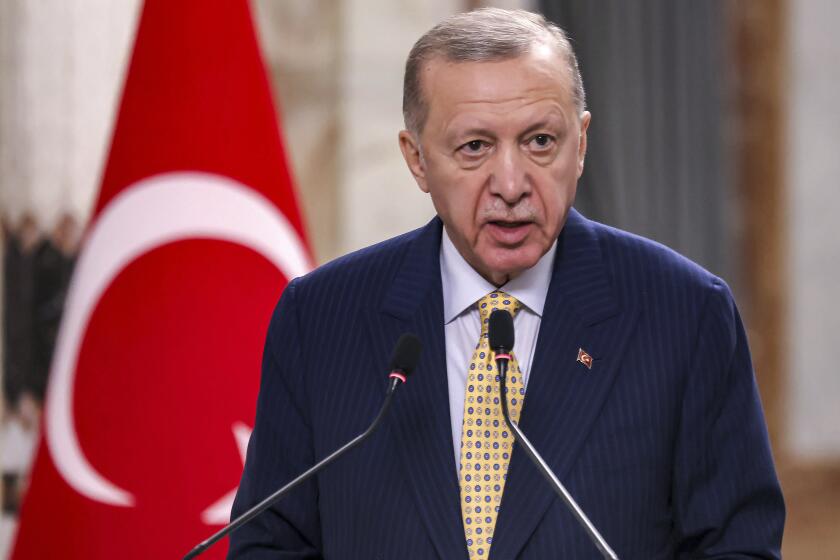Over here, over there
DURING TIMES OF relative peace, Christmas wishes like “peace on Earth” and “goodwill toward men,” though meaningful in their own right, can be uttered rote-like, a nod to tradition.
These sentiments acquire additional resonance in years like this one, however, when about 160,000 Americans are in harm’s way in Iraq and Afghanistan. And it is a troubling sign of the times that those televised greetings from our troops overseas on morning news shows seem like such an annual holiday staple.
It should come as no surprise, given the allure of peace and hearth in wartime, that so many of our modern Christmas traditions have their roots in the Civil War period. Before the 1850s, most Americans observed the season as a serious time for religious introspection. Many Europeans, on the other hand, celebrated much like we do now -- indulging in food and drink while outwardly celebrating with family and friends. (Perhaps George Washington had that in mind on Christmas Eve in 1776, when he and his men famously crossed the Delaware River to ambush the Hessians.)
During the Civil War, soldiers and their families on both sides of the Mason-Dixon line yearned for something more than the soulful introspection they could experience the rest of the year. Christmas cards became standard, along with caroling and tree decorating. Troops famously declared cease-fires to celebrate together, a practice that was also common in Europe during World War I. .
One of the most famous Christmas gifts ever given was heralded in a telegraph from Gen. William Tecumseh Sherman to his commander in chief, Abraham Lincoln, on Dec. 22, 1864: “I beg to present you as a Christmas gift, the city of Savannah, with 100 and 50 guns and plenty of ammunition, also about 25,000 bales of cotton.”
In 1870 -- five years after the Civil War ended -- Congress finally declared Christmas what it had become -- an official national holiday.
Other Christmases have been infused with added poignancy at wartime. In the last full year of World War II, Christmastime was a frightful period, as news of the Battle of the Bulge trickled back to the U.S. A year earlier, in 1943, Bing Crosby’s “I’ll Be Home for Christmas” became not only one of the most popular Christmas songs ever but a timeless, wistful anthem for servicemen and women overseas. It captures the idyllic nature of holidays with family and the reluctant nature of America’s engagement in the world.
Today in Iraq and Afghanistan, as in past conflicts, there are tens of thousands of men and women in uniform who are home for Christmas “if only in their dreams.” We honor their absence on this day, and their service.
More to Read
Sign up for Essential California
The most important California stories and recommendations in your inbox every morning.
You may occasionally receive promotional content from the Los Angeles Times.










